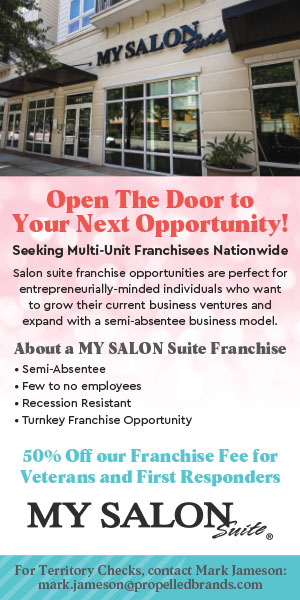Top 5 Areas for Navigating the Art & Science of Commercial Real Estate Leasing

In the complex world of commercial real estate leasing, the success of a business often hinges on meticulous attention to detail and strategic decision-making during site selection and lease negotiations.
Dan O’Connell, founder of Premier Retail Support, and a seasoned expert in the field, sheds light on common mistakes businesses make in these two critical areas, and provides valuable insights into the art and science of securing the right commercial space. Here are his top five areas that new (and even experienced!) entrepreneurs must pay attention to when selecting the location of their next investment.
1) Dead rent and free rent
O’Connell highlights the common pitfalls of dead rent and free rent scenarios, urging businesses to pay close attention to lease wording and ensure favorable terms. Mismanagement of these situations can lead to financial setbacks.
This matters when a business is opening. For instance, if a tenant misses their projected open date, but the rent commencement date has occurred, they will have to pay rent on a location that is not bringing in any money. The flip side is if your location has 180 days to open, but you could open early, in just 120, you could get two months of free rent, depending on how the lease is worded. “Most leases say 180 days or when open,” says O’Connell. “That’s when the tenant should change it to 180 days regardless.”
2) Lease terms and negotiations
Standard lease norms include a 10-year deal with two 5-year options and always asking for exclusivity. O’Connell advises against agreeing to phantom/market options, stressing the need for fixed numbers in the lease to avoid potential rent increases. “Landlords don’t want to give a fixed number, so they will say ‘Let the market determine the rent.’ But that is always going to be higher, and it will always go up.”
Addressing lease renewal 1 to 2 years before expiration is crucial. Waiting until the last 3 months puts tenants at a disadvantage, allowing landlords to leverage the urgency and potentially increase rent. “The landlord will ignore this approaching date because he knows you won’t be able to find an alternate location and move in that short a time,” says O’Connell.
3) Strategic site selection
Considerations like the AM/PM side of the highway are crucial, especially for businesses like coffee shops, which should ideally be on the morning side. Additionally, understanding parking ratios is vital to ensure the location can support maximum sales during peak hours. This is why thorough research is so critical, particularly in understanding traffic and road changes that might affect a business location. Overlooking such details can lead to unforeseen challenges negatively affecting foot traffic and accessibility.
Parking is another area that some overlook. For instance, if you are considering a second-generation restaurant space with a good location, anchors, and traffic, O’Connell advises you to ask how many parking spaces there are. “If a dining room has 40 chairs, and you assume two people per car, you need parking for those individuals and for employees,” he says. If you have fewer parking spots than that, you won’t be able to maximize sales with the lunch and dinner crowds because customers won’t have any place to park.
4) Pay attention to clauses
O’Connell warns against unquestioningly accepting relocation clauses, especially for smaller businesses. Large corporations are cautious about these clauses because of potential downtimes, employee turnover, and other relocation-related logistical challenges.
Businesses often get talked into providing sales reports, even when it’s not a percentage rent paragraph. O’Connell suggests being cautious with such clauses, as landlords might use this information against tenants during lease renewal negotiations. “This is simply the tenant giving the landlord justification and information to use against them,” he says. “When the lease is up for renewal, the landlord will look at the sales reporting, and think, ‘They can afford higher rent.’”
5) Strategic use of brokers
Commercial brokers are emphasized over other types, as they bring essential expertise in dealing with commercial lenders and can provide off-market opportunities, a valuable asset for businesses looking to expand or relocate.
Summary
Navigating the intricate landscape of commercial real estate leasing can be tricky for even seasoned entrepreneurs. By avoiding common mistakes and adhering to strategic principles, businesses can secure locations that foster growth and success while also protecting themselves from potential pitfalls in the competitive world of commercial leasing.
Ginny Gaylor is an award-winning writer and editor based in Greensboro, North Carolina. She has more than 25 years of experience writing on a variety of topics from home furnishings to health care, hospitality to lifestyle. She can be reached through her website, ginnygaylor.com.
Share this Feature
Recommended Reading:
Comments:
comments powered by Disqus| ADVERTISE | SPONSORED CONTENT |
FRANCHISE TOPICS
- Multi-Unit Franchising
- Get Started in Franchising
- Growth
- Operations
- Open New Units
- Leadership
- Marketing
- Technology
- Legal
- Awards
- Rankings
- Trends
- Featured Franchise Stories
| ADVERTISE | SPONSORED CONTENT |
$250,000
$200,000




 The multi-unit franchise opportunities listed above are not related to or endorsed by Multi-Unit Franchisee or Franchise Update Media Group. We are not engaged in, supporting, or endorsing any specific franchise, business opportunity, company or individual. No statement in this site is to be construed as a recommendation. We encourage prospective franchise buyers to perform extensive due diligence when considering a franchise opportunity.
The multi-unit franchise opportunities listed above are not related to or endorsed by Multi-Unit Franchisee or Franchise Update Media Group. We are not engaged in, supporting, or endorsing any specific franchise, business opportunity, company or individual. No statement in this site is to be construed as a recommendation. We encourage prospective franchise buyers to perform extensive due diligence when considering a franchise opportunity.